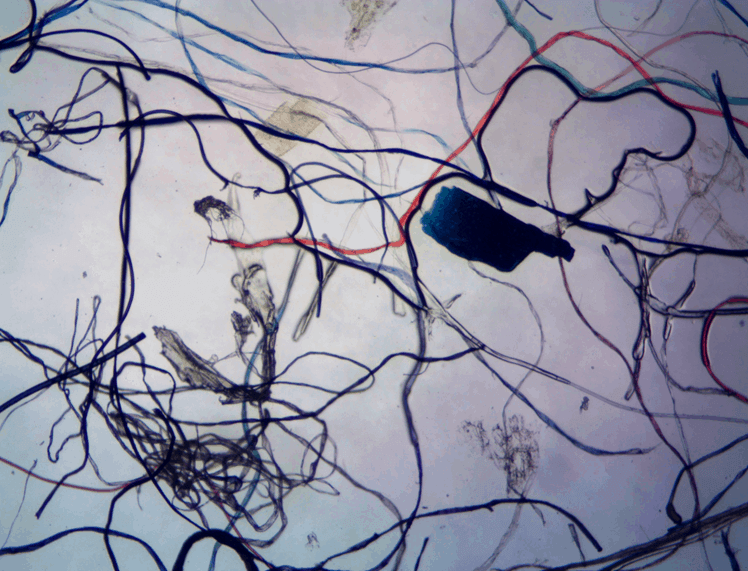Microplastics

The Issue
Microplastics are tiny pieces of plastic, smaller than 5mm, that are increasingly found in our freshwater. These microplastics can come from everyday products, such as microbeads found in cosmetic products, or microfibers from clothing and fabrics containing plastic. Additionally, microplastics can also be formed as larger plastic items break apart into smaller fragments through erosion or other processes.
Microplastics are hard to get rid of; they don’t biodegrade naturally, and so present an ongoing and potentially long-lasting threat, especially as they continue to be introduced. They absorb chemicals that are present in the water and are eaten by fish and other marine life who mistake them for food. Eating microplastics can cause harm to the wildlife that ingests it, and may have further impacts on our ecosystems that are not yet fully understood.
Although wastewater treatment plants have improved their ability to capture microplastics, they continue to be found throughout the watershed, indicating that they are being steadily introduced by human activity. Potential means of introduction include through sludge from wastewater facilities used in agriculture, and also via stormwater runoff and snow melt.
How Are We Helping?
Ottawa Riverkeeper encourages the public to be more aware of the waste that can enter our waterways. We host regular shoreline cleanups in communities throughout the watershed, and encourage individuals to collect trash themselves through the iCleanup app.
Ottawa Riverkeeper has previously partnered with scientists at Carleton University to investigate the abundance of microplastics in the watershed. Leveraging our expansive Riverwatch Network of citizen scientists, we were able to gather data from a large swatch of the river first and more recently, from sediment along the shore. Microplastics were found in every single sample Riverwatchers collected. You can read the published papers online, which examine the presence of microplastics in the river itself and along the shore.
Ottawa Riverkeeper also ran a campaign, “Ban the Bead,” in which we joined with other organizations to ask the Canadian government for a change to regulations to prohibit the inclusion of microbeads in cosmetic products. We were successful, with a ban on microbeads put in place as of July 1st 2018.
We have continued working to see similar action taken on other sources of microplastics as we saw with microbeads. As such, Ottawa Riverkeeper offers support for initiatives to reduce plastic use in Canada and in the Ottawa River watershed. In 2018 we joined with NGOs across Canada to sign a declaration from Environmental Defence encouraging the Government to implement a national waste reduction strategy that seeks to drastically reduce plastic pollution. Likewise, we celebrated the Government’s announcement of a ban on several single use plastics on June 22nd, 2022.
